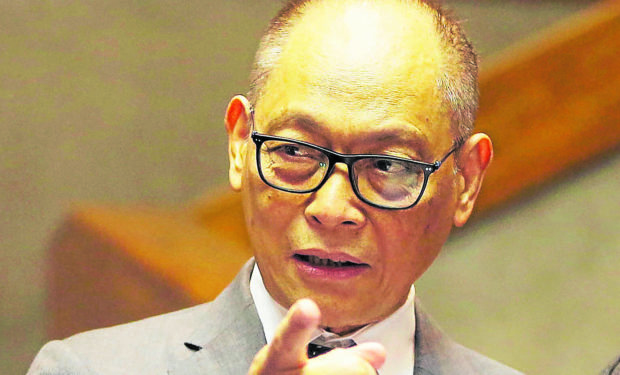‘Patient hand’: BSP keeps interest rate at 2 percent
MANILA, Philippines—Encouraged by two successive months of declining—though, still high—inflation rates, the central bank on Thursday (Nov. 18) decided to keep the cost of borrowing at their current record low levels in a bid to help the economy recover from the crippling effects of the pandemic.
In a briefing, Bangko Sentral ng Pilipinas (BSP) Governor Benjamin Diokno said “the sum of new data suggests that there remains scope to hold monetary policy settings steady amid a manageable inflation environment.”
“The Monetary Board maintains that keeping a patient hand on the BSP’s policy levers, along with appropriate fiscal and health interventions, will keep the economic recovery more sustainable over the next few quarters,” he said.
The BSP’s overnight borrowing rate—which financial institutions use as a guide for pricing their own loans—was kept as 2 percent. This is the lowest it has been in the country’s history, and was cut to this level in a series of moves early in 2020 at the onset of the COVID-19 crisis.
Diokno said the latest baseline forecasts are “broadly unchanged” from the previous assessment round, with average inflation seen to slightly exceed the upper end of the target band of 2-4 percent in 2021.
Inflation is projected to settle close to the midpoint of the target range in 2022 and 2023, as the recent rise in global crude oil prices, the stronger recovery in domestic economic activity, and the slight depreciation of the peso were mostly offset by the lower-than-expected inflation numbers in recent months.
The BSP also believes that inflation expectations have also remained firmly anchored to the baseline projection path.
Diokno noted, however, that the risks to the inflation outlook have shifted towards the upside for 2022 even as they remain broadly balanced for 2023.
“Upside risks are mainly linked to the potential impact of weather disturbances on the prices of key food items, petitions for transport fare hikes, and the possibility of a prolonged recovery of domestic pork supply,” he said.
“Strong global demand amid persistent supply-chain bottlenecks could also exert further upward pressures on international commodity prices,” he added. “The uncertainties in food supply require determined reforms to improve farm productivity and competitiveness.”
The central bank chief warned that potential delays in the lifting of domestic containment measures, as well as the emergence of more virulent COVID variants, could also dampen prospects for both global and domestic demand and thus temper inflationary pressures.
Diokno said the Monetary Board also observed that economic growth appears to be gaining solid traction, driven by improved mobility and sentiment amid the calibrated relaxation of quarantine protocols and continued progress in the government’s vaccination program.
“Nevertheless, the Monetary Board noted that sustained measures to safeguard public health and welfare remain crucial to facilitate the recovery in investment and employment,” he said.
Thursday’s interest rate setting meeting is the second to the last one of 2021. The final one will be held on Dec. 16.
